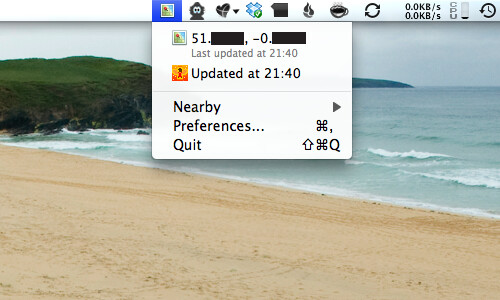Clarke - an OS X Fire Eagle updater
I've been doing some iPhone development recently, which I'm looking forward to talking about very soon. This has meant levelling up pretty quickly in Objective-C/Cocoa, which has been really quite enjoyable. I'll come back to this another time.
Writing iPhone stuff means that you're a short hop away from writing OS X stuff. And so, to prove I could, I made a small desktop application.
It's called Clarke. It's really not very exciting — don't get your hopes up. It's just a toolbar thing that sits there, quietly, using Skyhook's API to triangulate your location from nearby wifi points, pushing it to Fire Eagle. Yes, it's YAFEU (Yet Another Fire Eagle Updater).

Anyway, it scratches a small itch of mine, allowed me to poke around with proper desktop coding a bit, and hopefully you'll find it useful. Download Clarke.